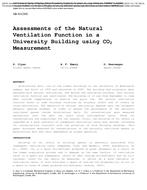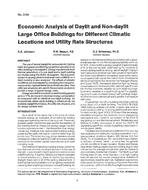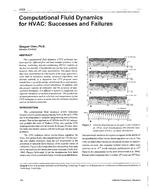The design of a heating, ventilating and air conditioning system to maintain comfort in a residential structure while operating efficiently is highly dependent on realistic estimates of the heating and cooling loads. This is true regardless of building type, location, or climatic conditions. With most environmental control applications, the system operates at part load most of the time. Therefore, it is essential that the heating and cooling equipment be properly sized to minimize the low efficiency of partial load operation. Equipment oversizing also leads to problems of humidity control. Equipment undersizing has obvious consequences; however, this does not seem to be a deficiency of present load calculation procedures.
A program of research is described herein where a survey of all the residential load calculation procedures and data that could be identified through a search of the literature, personal contacts and other methods was made and the material documented. At the same time similar procedures for commercial structures were screened for later use in preparation of a load calculation method. From the literature survey a plan was formulated to develop a method which takes into account the needs of all types of residential structures. Care was taken to ensure that all procedures have a sound basis in the published literature, are consistent with current commercial procedures, and, most of all, yield consistent reliable results.
Product Details
- Published:
- 1984
- Number of Pages:
- 268
- File Size:
- 1 file , 7.1 MB
- Product Code(s):
- D-RP-342


